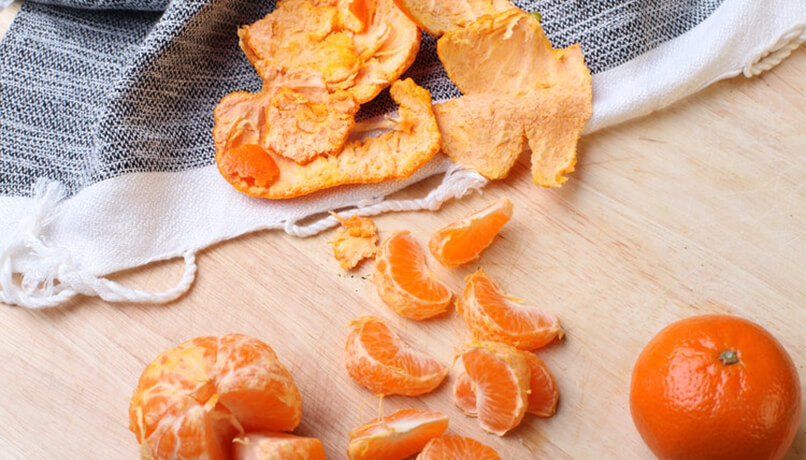‘Utilisation of residual commodities’ or "How to use up leftovers".
Almost 50% of the total amount of food thrown away in the UK comes from our homes. We throw away 7.2 million tons of food and drink from our homes every year in the UK, and more than half of this is food and drink we could have eaten. Wasting this food costs the average household £480 a year, rising to £680 for a family with children, the equivalent of around £50 a month.
There are two main reasons why we throw away good food: we cook or prepare too much, or we don't use them in time. The foods we waste the most are fresh vegetables and salad, drink, fresh fruit, and bakery items such as bread and cakes. The good news is that during recession and hardship food waste has a tenancy to reduce by around 13%. 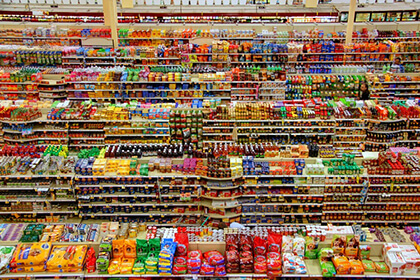 However, consumers have been sucked into the supermarket lifestyle so much that they haven’t noticed how much power they wield. They shape our environment - both macro, in the policies they control the farmers with; and micro, where they build their outlets; our health by analysing store cards and guiding us through the store; the way we interact socially - we can now shop without leaving the house, even with the price wars and ‘special offers’ what we buy and put on our plates. The end customer wins, due to cheaper food, greater range but less choice, and basic food security.
However, consumers have been sucked into the supermarket lifestyle so much that they haven’t noticed how much power they wield. They shape our environment - both macro, in the policies they control the farmers with; and micro, where they build their outlets; our health by analysing store cards and guiding us through the store; the way we interact socially - we can now shop without leaving the house, even with the price wars and ‘special offers’ what we buy and put on our plates. The end customer wins, due to cheaper food, greater range but less choice, and basic food security.
The disadvantage is that as we face peak oil, the companies and food systems must become resilient as the need for land increases to grow agrofuels rather than keeping livestock. Also, we now live in a land of excess here millions of tons of food is wasted due to our need for conformity; in the produce, we expect straight bananas and cucumbers and milk that in our minds is only safe for a day!
Eat safe
Leftovers include foods that you may eat before or after they have been stored in the refrigerator or freezer. The chance of food poisoning increases the longer you store food after it is cooked. Improper handling or storing cooked food is one of the most common causes of food poisoning in the home. The careful cook can reduce this threat by following the guidelines below for storing, reheating, and disposing of leftover foods. All cooked foods refrigerated, or frozen within 2 hours after cooking; in hot weather, that time limit is only 1 hour. Remember that the "safe" period starts after the food is cooked.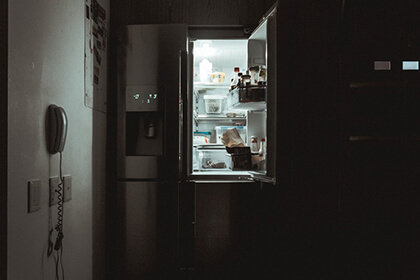
Leftovers containing meat should be used up or thrown out within three days. Other foods will last up to five days in the fridge. Don’t overload the fridge. Food needs to stay between 3-5 degrees Celsius, and packing too much in the fridge will inhibit the cool air from circulating effectively. Spread the containers out as much as you can. Label everything, when you reheat the food, make sure you heat it to 68 C.
Don’t over order
Analyse the menu to know the sellers and non-sellers. Use the same items in a different way on the menu, or on other menus. The true skill of the chef is to grab three things from the fridge and make a dish from them. An example of this would be to create a pork rillettes from leftover pork. Plan ahead - uses fish trimmings for a fish pie. If you follow these suggestions for handling leftover foods, you will improve the safety of your food. Food poisoning is a preventable tragedy, and you can prevent it by following these simple guidelines for handling leftovers safely.
Here are some tips and hints to utilise your residual commodities:
- Plan ahead and have re-sealable plastic bags and food-storage containers handy in order to store all leftover foods; this keeps things fresher.
- Serve small portions of leftover turkey, roast beef or ham along with lots of fresh fruits and vegetables for sandwiches, salads, wraps or a light main course, veggies and seafood with small portions of pasta or brown rice.
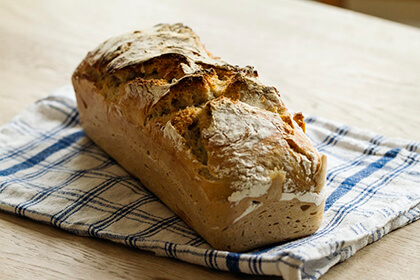 Extend freshness with water if you only used part of your green onions, celery, or any herb; keep it in a glass of water in the fridge to extend its life for another use.
Extend freshness with water if you only used part of your green onions, celery, or any herb; keep it in a glass of water in the fridge to extend its life for another use.- Bake it - carrots, bananas, strawberries, pears, and plums can be incorporated into loaves of bread and cakes. You can also add a bit of cinnamon and brown sugar to a halved peach, pear, or apple and bake until soft for a healthy and quick dessert.
- Compost It No one can save every leftover meal, but any food scrap can go into a compost pile. You can start a compost pile.
- Freeze It Most leftovers can survive in the freezer for a few weeks. This also goes for cheap cuts of meat or herbs. You can always buy them cheap and freeze until you need them.
“Food is meant to be manipulated, experimented with, and most importantly, eaten. These are just a few ways to get rid of your leftovers, though I think that it is just as important to prevent the existence of leftovers by buying only what you can eat in a reasonable amount of time”.
 Monitoring food waste
Monitoring food waste
One of the easiest ways to monitor waste in a professional kitchen environment would be to list it. Place a value on it then publish the results to the rest of the brigade - this way awareness of the cost of food is raised, and more care will be taken to improve the result by taking care of what is cooked day on day. An example of this practice is copied below:
Breakfast waste cost:
- 6 slices of fried bread cost £0.17 - put in the bin after breakfast
- 15 rashers of bacon cost £1.50 - put in the bin after breakfast
- 6 sausages cost £1.31 - put in the bin after breakfast
- 2 portions of baked beans cost £0.10 - put in the bin after breakfast
- 4 slices of black pudding cost £0.30 - put in the bin after breakfast
- 7 portions of scrambled egg cost £0.37 - put in the bin after breakfast
- 9 fried eggs cost £0.57 - put in the bin after breakfast
- 2 portions of Prunes cost £0.10 - to top up
- 2 yoghurts cost £0.50 - eaten by staff
- 10 portions of cereal cost £2.40 - eaten by staff
- 3 Danish pastries £0.54 - eaten by staff
- 10 pots of jam cost £1.06 - used for staff toast
- 20 sauce sachets cost £0.54 - put in the bin for no reason
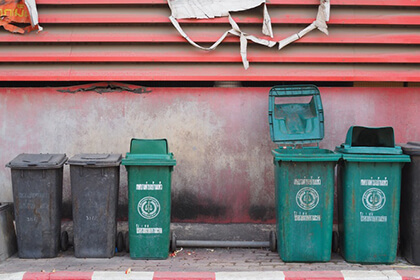 12 portions of butter cost £0.56 - used for staff toast
12 portions of butter cost £0.56 - used for staff toast- 4 pints of milk cost £1.52 - thrown on to plate and washed in jugs
- 6 glasses of fruit juice cost £0.49 - drank by staff
- 4 continental baskets cost £2.00 - put up but not used
- 6 portions of cheese cost £1.70 - thrown in the bin from room service
- 20 sauce sachets cost £0.30 - put in the bin for no reason
TOTAL
-£16:03 AFTER EACH SHIFT
-£ 112:21 AFTER ONE WEEK
-£ 5834:92 AFTER ONE YEAR
-£ 93,358:72 14 HOTELS
As you can see, it quickly adds up - the choice is yours.
.png?width=1571&height=766&name=CFD%20knife%20and%20fork%20logo%20(carbonfriendlydining.org).png)

